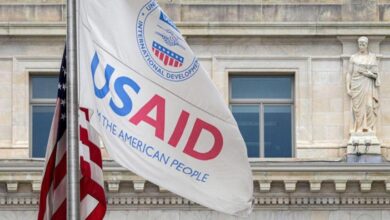Nyaho-Tamakloe hails Mahama’s 120-day progress, demands tougher galamsey action

Founding member of the New Patriotic Party (NPP), Dr. Nyaho Nyaho-Tamakloe, has lauded President John Mahama for making notable strides in fulfilling his 120-day social contract pledges to Ghanaians, but has called for more decisive action on illegal mining.
Ahead of the 2024 election, then-candidate Mahama unveiled a list of 25 commitments he pledged to implement within the first 120 days of his presidency if elected.
The ambitious plan covered a broad range of sectors, including nine promises on the economy, four on governance reforms, seven in education and social welfare, three on national security and justice, and one each on the environment and tourism.
Speaking during the launch of his memoir A Nation Into Retirement: A Narrative of a Statesman on May 7, 2025, Dr. Nyaho-Tamakloe acknowledged that the president had made considerable headway on several of these pledges.
However, he expressed concern over the government’s response to illegal mining, popularly known as galamsey, and the resulting environmental degradation.
“He came out with a number of promises and what I see so far, he’s touched a lot of them. However, I am still not happy about the destruction of our water bodies,” Dr. Nyaho-Tamakloe told TV3.
“So even though he’s done so far so good, his main target for me should be the correction of the mess that has been created by so-called mining in our forests.”
He also criticized the government’s current policy of deporting foreign nationals arrested for engaging in illegal mining.
Instead, he advocated for stricter legal consequences within Ghana’s judicial system before any deportation takes place.
“These people should be held responsible and secondly all those foreigners arrested have to go through the law courts of this country before they are deported,” he said.
Dr. Nyaho-Tamakloe’s comments add to the ongoing national conversation around illegal mining, which continues to threaten Ghana’s forests, rivers, and rural communities.





